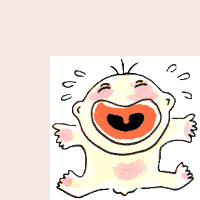ただ
Just
ある 日 、お調子者 の 松さん が 、隠居 の 家 に 遊びに 行きました 。
ある|ひ|おちょうしもの|の|まつさん|が|いんきょ|の|いえ|に|あそびに|いきました
a|day|a cheerful person|attributive particle|Mr Matsu|subject marker|retired person|attributive particle|house|locative particle|to play|went
One day, Matsusan, a cheerful person, went to visit the retired person's house.
「 ご 隠居 、 ご 隠居 は います か ?
|いんきょ||いんきょ|||
"Are you there, old man?"
」「おや 、これ は 珍しい 。
おや|これ|は|めずらしい
oh|this|topic marker|rare
"Oh, this is unusual."
誰 か と 思えば 松 さん かい 。
だれ|か|と|おもえば|まつ|さん|かい
who|question marker|quotation particle|if you think|Matsu|Mr/Ms|right
I thought it was someone else, but it's Mr. Matsu.
さあ 、あがんな 、あがん な 」「はい 、それでは あがらせて もらい ます 。
さあ|あがんな|あがん|な|はい|それでは|あがらせて|もらい|ます
well|don't go up|go up|you|yes|well then|let me go up|receive|polite ending
Well, come on, come on. "Yes, then I will take my leave."
しかし ご 隠居 は 、 いつも お 若い です ね 」 「 いやいや 、 もう 若く は ない よ 」 「 でも 、 五十四 か 五 で ございましょう ?
||いんきょ||||わかい|||||わかく|||||ごじゅうし||いつ||
But you, old man, are always young, aren't you? "No, no, I'm not young anymore." "But you must be fifty-four or fifty, right?
」「いやいや 、わし も 、もう 七十 に なった 」「へーっ 、そう です か 。
いやいや|わし|も|もう|ななじゅう|に|なった|へーっ|そう|です|か
no no|I (informal masculine)|also|already|seventy|at|became|wow|so|is|question marker
"No, no, I've already turned seventy." "Oh, really? Is that so?
とても 、そんな お 年 に は 見え ません ね 」「そうかい 、そうかい 。
とても|そんな|お|とし|に|は|みえ|ません|ね|そうかい|そうかい
very|such|honorific prefix|age|locative particle|topic marker|looks|not|right|is that so|is that so
"You really don't look that age." "Is that so? Is that so?"
おせじ でも 、うれしい 事 を 言う ねえ 。
おせじ|でも|うれしい|こと|を|いう|ねえ
flattery|but|happy|thing|object marker|to say|right
"Even if it's flattery, it's nice to hear."
まあ 、酒 でも 一杯 飲んで 行きなさい 」こんな 調子 で 松さん は 、うまく ごちそう に なる 事 が 出来ました 。
まあ|さけ|でも|いっぱい|のんで|いきなさい|こんな|ちょうし|で|まつさん|は|うまく|ごちそう|に|なる|こと|が|できました
well|sake|or something|one cup|drink|go|this kind of|condition|at|Mr/Ms Matsu|topic marker|well|feast|locative particle|become|thing|subject marker|was able to do
"Well, why don't you have a drink?" With this kind of attitude, Mr. Matsu was able to successfully treat us.
しかし 松 さん は 、まだ 飲み 足りない 様子 です 。
しかし|まつ|さん|は|まだ|のみ|たりない|ようす|です
however|Matsu|Mr/Ms|topic marker|still|drinking|not enough|appearance|is
However, Mr. Matsu still seems to want more to drink.
そこ で 友だち の 太郎 兵衛 ( たろう べ え ) に 、 子ども が 生まれた の を 思い出して 、 「 あそこ に 行って 、 適当に お 祝い を 言えば 、 もう 一 杯 ぐらい は 飲める だろう 」 と 、 出かけて いきました 。
||ともだち||たろう|ひょうえ|||||こども||うまれた|||おもいだして|||おこなって|てきとうに||いわい||いえば||ひと|さかずき|||のめる|||でかけて|
There, I remembered that my friend Taro-bei had a child, and I thought, "If I go over there and say some appropriate congratulations, I might be able to drink another cup," so I set out.
「こん に はち 。
こん|に|はち
this|locative particle|eight
"Hello there.
この度 は 、 ご 安産 ( あんざん → 子ども が 無事に 生まれる 事 ) で 、 おめでとう ございます 」 松 さん が 言う と 、 太郎 兵衛 は うれし そうな 顔 で 、 「 おお 、 松 さん 。
このたび|||あんざん||こども||ぶじに|うまれる|こと||||まつ|||いう||たろう|ひょうえ|||そう な|かお|||まつ|
This time, congratulations on the safe delivery (the child being born safely)," said Matsu, and Taro-bei looked happy and said, "Oh, Matsu.
ほれ ほれ 、 見てくれ 、 ついに 念願 の 男の子 が 産まれた ん だ 」 と 、 赤ん坊 を を 見せて くれました 。
||みてくれ||ねんがん||おとこのこ||うまれた||||あかんぼう|||みせて|
Look, look, see, finally the long-awaited boy has been born," and he showed me the baby.
そこ で 松さん は 、そろそろ 酒 を 飲ま せて 貰おう と 思い 、得意の お世辞 を 始めました 。
そこ|で|まつさん|は|そろそろ|さけ|を|のま|せて|もらおう|と|おもい|とくいの|おせじ|を|はじめました
there|at|Mr Matsu|topic marker|soon|alcohol|object marker|drink|let|receive|quotation particle|think|good at|compliments|object marker|started
So, Matsusan thought it was about time to be allowed to drink, and he started with his usual flattery.
「さて さて 、これ は お 若い お 子さま だ 。
さて|さて|これ|は|お|わかい|お|こさま|だ
well|well|this|topic marker|honorific prefix|young|honorific prefix|child (honorific)|is
"Well, well, this is a young child indeed.
して 、 お いく つ で ございます か ?
May I ask how old you are?"
」それ を 聞いた 太郎 兵衛 は 、不思議 そうな 顔 で 言い ました 。
それ|を|きいた|たろう|ひょうえ|は|ふしぎ|そうな|かお|で|いい|ました
that|object marker|heard|Taro|Hyoue|topic marker|strange|looking|face|with|said|did
Tarohei, upon hearing this, replied with a puzzled expression.
「 おや ?
"Oh?"
お前 さん も おかしな 男 だ な 。
おまえ|さん|も|おかしな|おとこ|だ|な
you|Mr/Ms|also|funny|man|is|right
"You're a strange man too, aren't you?"
おととい 生まれた から 、たった の 一つ (→数え年 で は 、0 才 で は なくて 、1 才 です )だ 」「おお 、とても 一つには 見えません な 。
おととい|うまれた|から|たった|の|ひとつ|かぞえどし|で|は|さい|で|は|なくて|さい|です|だ|おお|とても|ひとつには|みえません|な
the day before yesterday|was born|because|only|attributive particle|one|traditional age counting|at|topic marker|years old|at|topic marker|and not|years old|is|is|oh|very|as one|does not look|sentence-ending particle
"I was born the day before yesterday, so I'm only one (→ In counting years, I'm not 0 years old, but 1 year old)." "Oh, you certainly don't look like just one."
わたし は また 、ただ か と 思い ました よ 」
わたし|は|また|ただ|か|と|おもい|ました|よ
I|topic marker|again|just|or|quotation particle|thought|did|emphasis marker
"I thought you were just that."
おしまい
The end.
SENT_CWT:AfvEj5sm=4.44 PAR_TRANS:gpt-4o-mini=3.35
en:AfvEj5sm
openai.2025-02-07
ai_request(all=32 err=0.00%) translation(all=25 err=0.00%) cwt(all=282 err=41.49%)

